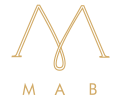MAB’s Mission Statement
The Hungarian Accreditation Committee (MAB) is an independent national expert body established to conduct external evaluations of the quality of education, scientific research, and artistic activities in higher education institutions, as well as the operation of their internal quality assurance systems.
The main task of MAB is to carry out evaluation activities that promote high-quality and modern education, learning, research, and development in Hungary’s higher education institutions. MAB ensures comprehensive and inclusive quality assurance, engaging all relevant stakeholders across different levels of education. Its quality assessment and accreditation tasks are performed in compliance with national higher education regulations. These tasks are carried out following the criteria set by the Standards and Guidelines for Quality Assurance in the European Higher Education Area (ESG), applying objective evaluation criteria developed by its Colleges and approved by the MAB Board, along with complex and modern procedures appropriate to each task.
MAB strengthens its independent operations through its activities, employing and developing internationally recognized methodologies for evaluation. Its expert, accreditation, analytical, and advisory activities are built on objective criteria aligned with international standards. These activities are conducted independently, impartially, and free from political influence. MAB supports higher education institutions in enhancing their internal quality assurance culture, contributing to the effectiveness of Hungarian higher education, improving its quality management practices, and strengthening its international competitiveness and recognition.
MAB’s internal quality assurance principles (quality policy) are outlined in a separate document.
MAB’s main objectives
As a full member of the European Association for Quality Assurance in Higher Education (ENQA), a registered organization in the European Quality Assurance Register for Higher Education (EQAR), and an organization recognized by the World Federation for Medical Education (WFME), MAB’s main objective is to provide comprehensive expert support for the competitiveness of Hungarian higher education.
In order to achieve these goals, MAB:
- evaluates the compliance of higher education institutions and their training programmes in line with ESG standards and guidelines (and in the case of medical education, the WFME-BME standards);
- Supports higher education institutions in achieving their own quality goals and in continuously developing their internal quality assurance activities in line with the Plan-Do-Check-Act (PDCA) principles;
- Fulfils national and international accreditation (quality assurance) requirements, conducting cyclical accreditation procedures to determine whether institutions and their programs meet the ESG standards;
- Verifies and accredits institutions that meet the standards and provides recommendations for further development in its evaluation reports.
MAB’s evaluation activities
MAB’s evaluation activities include the reviewing the applications for university professorships based on the criteria defined in the National Higher Education Act; conducting international accreditation of medical education in accordance with WFME’s standards for basic medical education; carrying out its core responsibilities related to the establishment and launch of higher education programs.
MAB’s Comprehensive Strategic Goals (2025-2030)
Context:
MAB has successfully achieved the overall goals of its previous strategic period (2019-2024), which included (enhancing quality assessment processes Increasing national and international engagements/activities, introducing a new accreditation system for doctoral schools, strengthening external stakeholder participation in MAB’s activities, and conducting and publishing thematic analyses).
For the upcoming strategic period, MAB defines its comprehensive goals based on the foundation laid in the previous cycle, insights gained from European Higher Education Area (EHEA) organizational structures, and related trends, analyses, thematic professional, and policy documents and recommendations.
Strategic Goals for the Upcoming Period:
- Further strengthening the institutional accreditation: Implementing an integrated accreditation procedure that evaluates institutions and all their study programmes (including doctoral programs) collectively, ensuring a more modern and comprehensive quality assurance process in alignment with EHEA and European Union (EU) higher education trends.
- Advancing internationalization: Conducting accreditation procedures in English with internationally composed Site Visit Team and organizing international events on quality assurance.
- Simplifying and expediting the establishment and launch procedures for higher education programmes: in this context, enhancing institutional autonomy with regard to internal quality assurance.
- Continuous development and updating of evaluation criteria and procedures: Adapting to the evolving landscape of digital teaching and learning, micro-credentials, and artificial intelligence while ensuring academic integrity and effectively implementing new procedures.
- Training quality assurance experts in higher education and improving communication with quality assurance stakeholders: Strengthening collaboration with higher education institutions through regular professional training sessions and forums.

